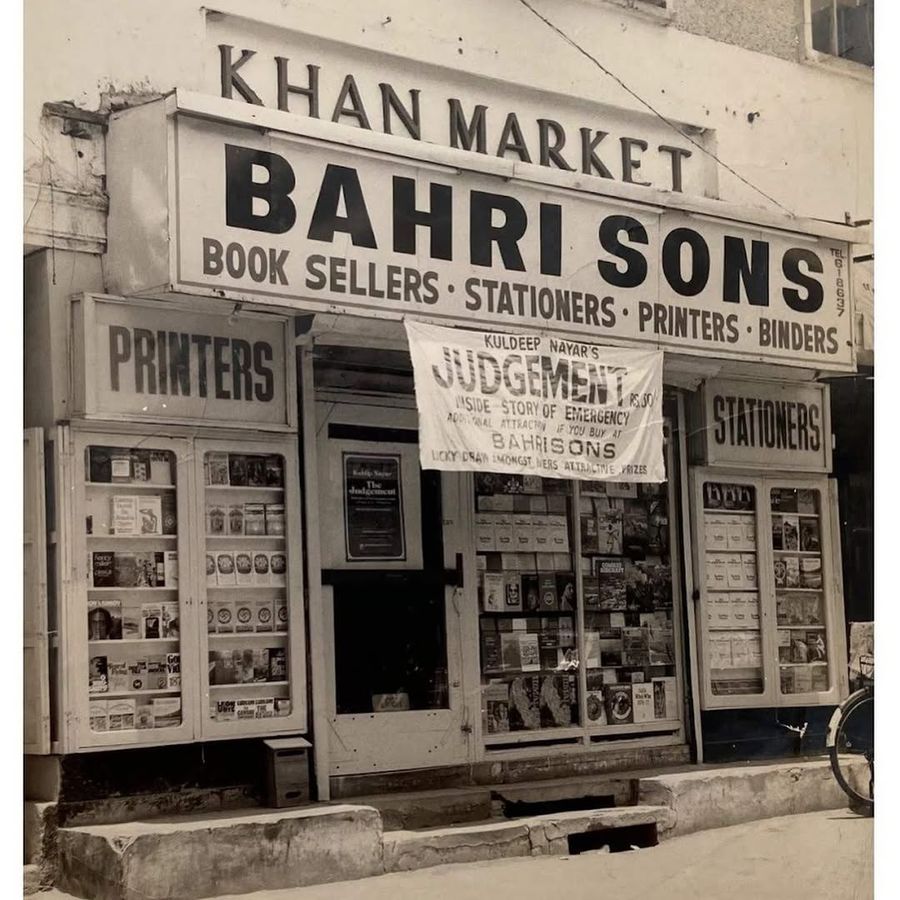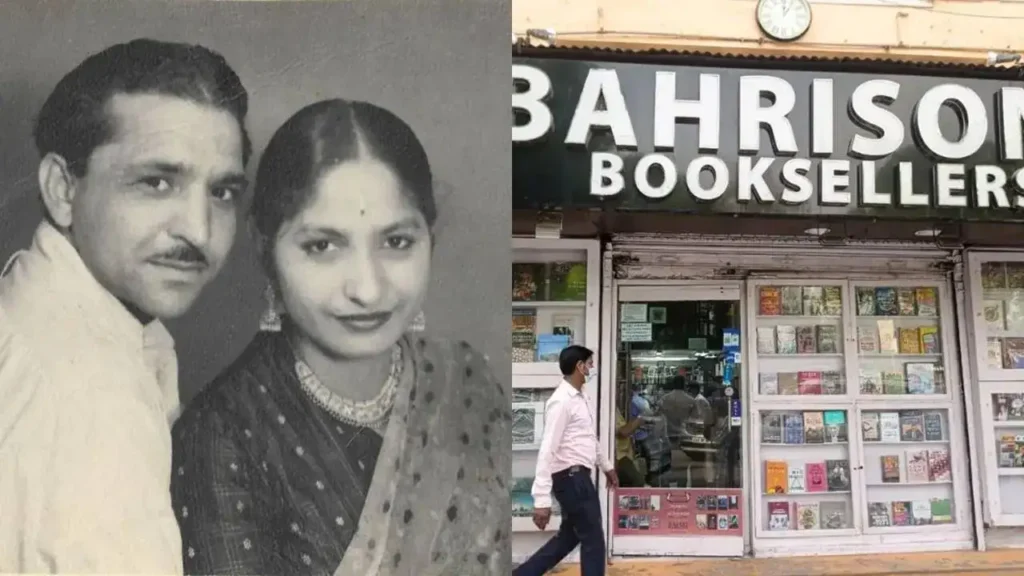The Partition of 1947 uprooted millions across India and Pakistan, scattering families and futures alike. Out of that chaos emerged a story of resilience and companionship that later gave Delhi one of its most loved cultural landmarks — Bahrisons Bookstore.
A Camp Encounter
Balraj Bahri Malhotra, 19, fled Malakwal in present-day Pakistan and arrived at Kingsway Camp, one of Delhi’s largest refugee settlements. Around the same time, 16-year-old Bhag Guliani, who had escaped Dera Ismail Khan with her family, also sought shelter in the same camp. Life in the camps was marked by deprivation and uncertainty, yet it became the backdrop for the couple’s first meeting.
A Modest Start in Khan Market
By 1953, Balraj had saved enough to open a small shop in Khan Market with help from his employer. What began as a modest venture soon grew into Bahrisons Bookstore, known for its curated collection and loyal readers. Bhag later joined him behind the counter, often stepping in while he rested, making the shop as much her space as his.

Marriage and Legacy
The two married in 1955, weaving together lives marked by displacement but sustained by hard work and quiet affection. In her daughter Aanchal Malhotra’s book In the Language of Remembering, Bhag recalls small everyday gestures that kept their bond strong, including Balraj’s habit of bringing her fresh flowers every evening.
More Than a Bookstore
Today, Bahrisons is more than just a retail outlet. It is a cultural institution that grew out of a refugee family’s determination to rebuild their lives. For readers, diplomats, and writers who frequent it, the store stands as both a literary destination and a living reminder of survival, love, and the human ability to create permanence after exile.


